One day last week, my brothers told me that “a dog is coming to the house tomorrow.” They both like dogs, so they were excited, and I figured that a friend or family member must be bringing their dog over for the boys to play with. Most dogs here live on the streets, but they are cared for by the people in the neighborhood where they live. Food scraps are left out for the dogs, and community members know the dogs that live nearby and seem to have some affection for them: I often see people and dogs sitting out on the steps together. They’re not unlike pets, except that they sleep outside rather than in someone’s house. And because the dogs are usually so well taken care of (near me, at least), they tend not to be too aggressive, and I rarely feel scared even walking around packs of dogs in the streets.
The next day, my brothers came to my room after school to announce that “the dog is here.” When I went downstairs, I found the two of them with a small, black puppy, and no parents in sight. Suddenly I realized what had happened: we got a dog! My brothers proudly announced that her name is Hachy, and she’s a German Shepherd. Though I have my doubts about the authenticity of her pedigree, she is black and fluffy and adorable, and I kept my mouth shut. It seems that my host parents took my brothers literally when they gave the usual promises that they would take care of her completely by themselves, dropping them off alone at the house with the new dog right after picking her up.
So far, my brothers’ care leaves something to be desired, but they are willing (or they have been for the first week, at least). Hachy sleeps downstairs, outside their room, where she has been waking up very early in the morning every day to cry loudly. She spends much of her day up on the balcony outside the kitchen, where they put out food for her and she can play with anyone attempting to go to the bathroom. I was wondering how housetraining was going to work, but they don’t really take her outside: instead, she’s free to relieve herself just about wherever, since most of the house has concrete floors. I’ve learned to watch my step.
In many ways, she’s a good match for my brothers (especially the younger one), playful and a little bit annoying, whining whenever she wants attention or can’t get somewhere. She’s also in that teething puppy phase where she wants to bite everything, which has been educational for my brothers, who just want to pick her up and toss her around. They don’t always listen to me when I say to be gentle with her, but when she gives them a needle-sharp nip they shape up quick. Having an animal around has made a big difference for me, especially on days where I am home alone, and it gives my brothers an excuse to come to my room and tell me that “Hachy wants to play.” I’m not sure exactly how Hachy communicates that to them, but they are somehow always certain that I need to come with them and play immediately.
Since my return from vacation, I’ve been spending a lot of hours playing with my brothers, who were really excited to have me back in the house. When we’re all at home, it’s just a matter of time before the younger of the two, Aarash (6), bursts into my room and starts dancing, telling me (not asking) that it’s time to play. Generally speaking, Aarash prefers any games which make a complete mess of my room or require me to pick him up. He also likes to play pretend, teacher and student, dog and human—the catch is that no matter what the roles are, he tells me what to do. And now that we have Hachy, Aarash plays with her too, although she doesn’t take orders quite as well as me.
The older of the two, Aayush (11), will join in and play with us sometimes, but prefers to watch videos together. He asks me nearly every night if we can watch something together after dinner. There is one game that the three of us all play together, which requires one person to be blindfolded and then try to tag the other people. No accidents have occurred so far, but since we usually play in my room, which is about 120 square feet, the games don’t last too long. Aayush is also really creative, having given me some short stories to edit for him and occasionally asking for an empty water bottle or other piece of recycling for a craft project. When I come home, he’s always eager to show me his latest work.
My transition back into school and teaching went a bit more smoothly than I’d expected after more than a month off. This was due at least in part to the fact that many students took their time coming back to school—the first day back, only about one-third of all the students were present. The second day, it increased to about half. By the end of the week, it was more or less normal, around eighty percent attendance. This was probably due to students traveling to their villages during the holidays, trips which could take multiple days depending how far they had to go. At the same time, those who hadn’t done their vacation homework knew they’d get in trouble, and nothing was keeping them from taking one or two extra vacation days after they got back to Kathmandu. In the meantime, though, we weren’t really able to teach any curriculum, so most teachers either did review or just came into the classroom, sat down, and chatted with kids about their vacations.
These days, I feel a lot more comfortable at school. It’s hard to say that I enjoy it, since it can still be stressful at times, but it’s nice to feel like a part of a loose community, and to know the people there. When I walk into a classroom now, I know the students, and not just by name: I know who to call on for a hard question and who’s getting answers from the person sitting next to them, who can speak English but can’t write it (and vice versa), who will laugh if I use them in an example and who will refuse to stand up if I call on them to read aloud, who’s saying the answers the loudest and who’s actually getting the most correct, who’s making trouble because they’re so far behind in English that they understand nothing and who’s quietly listening to hide the fact that they also understand nothing.
There are many classroom norms that I continue to struggle with, and a lot of them are related to deference to the teacher, which generally makes me uncomfortable. Students are expected to ask permission for everything they do, even drinking water. When a student is called on, they have to stand up and stay standing until the teacher allows them to sit, and I’ve seen teachers use this as a punishment, not allowing students to sit for long periods of time. All my students want check marks from a teacher on every single thing they write in their notebook, even if its just copying from the board, and the checks have to be in red pen, not black or blue. One behavior that has taken me a while to adjust to is students’ aversion to saying “I don’t know.” When a student doesn’t know the answer to something, they just keep quiet and lower their eyes, waiting for the teacher to instruct or punish them (or both). This last one was a really important realization for me, since what I was interpreting as a student taking time to think was actually a cue for me, as the teacher, to step in and help them.
The school itself has been slowly improving since I arrived, and when I get to school some days I even think that it looks pretty good. We just replaced all of the desks and benches in the classrooms (after letting all the new desks sit outside and rust for over a month, of course), and the old desks, which were in pretty bad shape, are piled up on the roof now (where they’ll likely be for another month). The new library is finished being cleaned out, and since no other teacher seemed to have any idea how a library works, I volunteered to take the lead in organizing it. Over the past two weeks, I’ve spent my free periods unboxing books and trying to categorize them, laughing over what I found. Among the very few English titles were books like War and Peace (Leo Tolstoy) and Argumentative Socialist (Vladmir Ilyich Lenin), and among the Nepali books were an inordinate number of health books with graphic covers, self-help paperbacks with names like “101 Secrets for Success” or “Increasing Your Brain Power,” and an English “Teachars Guide” to accompany the grade 3 textbook.
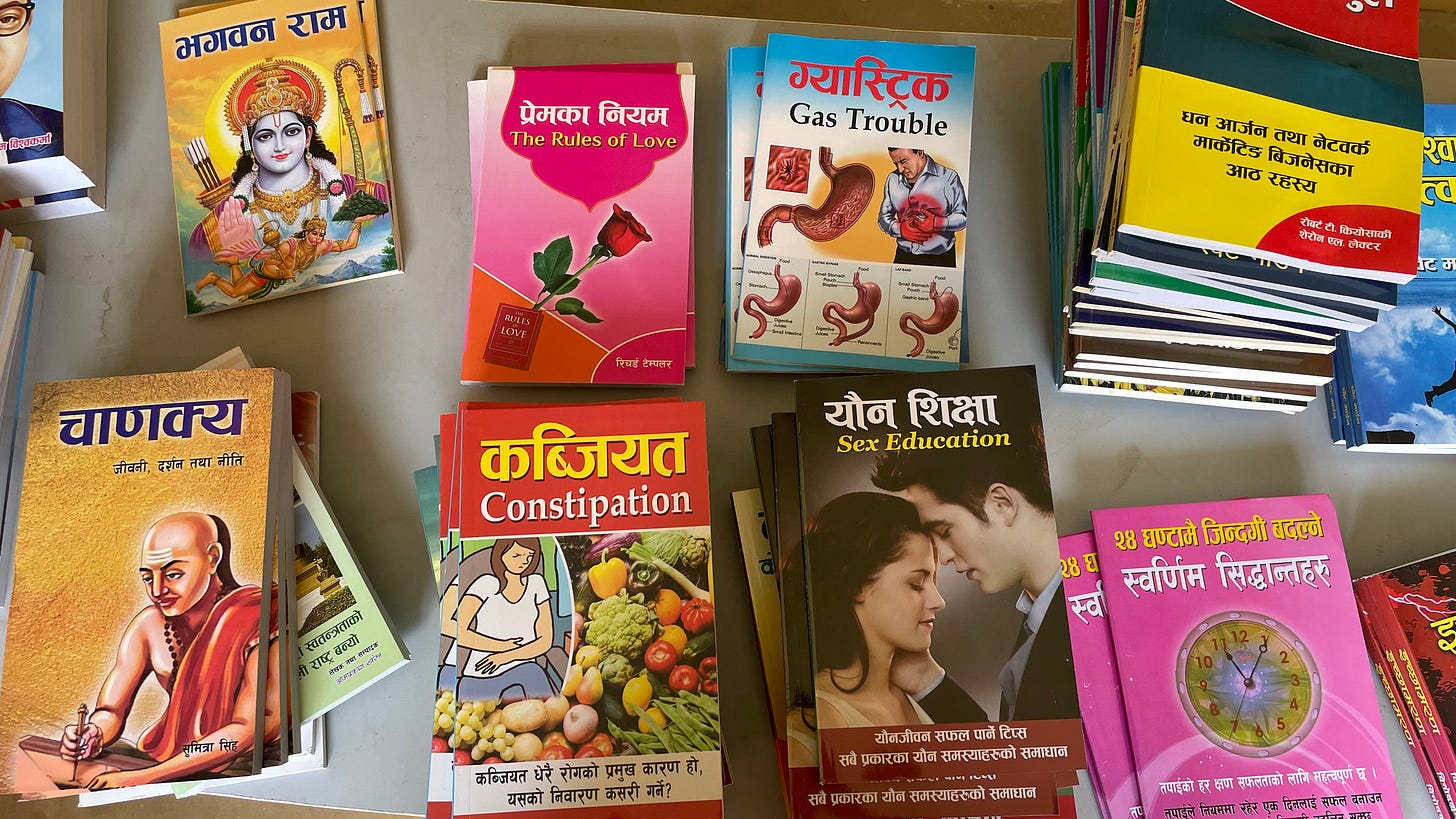
Last week, a school inspector from the municipality office came to our school. She created quite a splash, beginning her conversation to the teachers (which kept us an extra 30 minutes late) with the line “I’m a little mean. I’m a little mean,” and then diving into all kinds of questions and telling teachers all the things they had to do differently. She asked administration where my teaching certifications were (in Nepali), and when I jumped in to explain she switched to a rather condescending English and informed me that she was “a school inspector doing a school inspection.” (That was when I sat back and pulled out my phone.) The real kicker is, after all of this, it turned out that my administration had sent her a report with information on all the questions she had asked, including my status, and she had clearly just not read it before coming. Teachers are still quoting her and laughing about it at school now.
The thing is that I actually have some appreciation for what the inspector was trying to do, though I might have chosen a different opening line for my monologue. She clearly cares about education and sees her job as a way to help kids by improving schools, and my school is not perfect by any means. Her attitude gave teachers an easy way out, allowing them to dismiss her rather than think more deeply about whether their lesson planning could be better (which, trust me…). In addition to knowing my students well, I also know the teachers by now: who likes to joke around and who is a bit more serious, who is relaxed in class to the point of barely teaching some days and who is so rigid that they focus only on students memorizing the content of the book regardless of actual understanding. Though we are fighting uphill, against awful textbooks and irregular attendance and lack of resources, there is room for improvement among the teachers as well.
When I returned to the city two weeks ago, I found that fall had arrived in my absence. Gone are the hot and sweaty days, and in their place are warm afternoons and chilly nights. The skies stay clear and in the sun it’s still very comfortable, but since the classrooms at my school are concrete boxes, I wear a sweater every day. When the sun goes down it cools off fast, and if a wind blows through (or if you’re on the back of a motorbike) then an extra layer is necessary. Many of the teachers are far more layered than I am, already wearing their puffy coats, but some students are still wearing just a shirt to school, shivering at their desk.
All of this would make perfect conditions for day hikes and other outdoor adventures, but unfortunately, the air pollution has returned with the dry weather. It’s just as bad now as it was in the spring, maybe even worse on some days. I think I hadn’t quite realized how much the rain was doing to keep the dust down until it didn’t rain for a few weeks, and now I can’t see the other side of the valley. The past day or two have been especially bad—someone told me it’s partially due to smoke and pollution floating up from India following the holidays there, though how true that is I don’t know. All I know is that when I got up this morning, I could hardly see over a kilometer away through the thick haze, and it certainly did not make me want to go outside.
Outside of school, my days have been marked by a certain slowness and loneliness. Though I do feel a lot more comfortable in my surroundings, and visits from family and friends showed me how far I have come, I still don’t feel like I have any real community, any people I can turn to here. I spend my days passing the time however I can, going on long walks or reading books or watching screens, going to school and playing with my brothers, but sometimes it feels like I’m doing just that: passing the time. There are moments of lightness, going for an evening walk with a friend, showing Bob and Ada around my neighborhood after their trek, sitting in the community center while people gather to sing and chat, but as wonderful as these moments are, they are not lasting. I find solace, but I find no joy here in Kathmandu.
I am trying to fight the resignation that seems to be slowly building inside of me, especially with my departure approaching faster than ever. I have been doing my best to make being here work for me, but I haven’t found my place yet. At the same time, I found a way to be comfortable here, and isn’t that something to be proud of? There are only two months left, and I could very easily pass them just as quickly as I did the past two weeks, leaving my house occasionally, seeing a friend or two, attending a cultural event that I heard about on my own. I want to push myself, to make as much as I can out of the time that I have left, but I also need to be kind to myself, to remember how much I have already done. Sometimes, I think, just being here is enough.
Until next time: peace!
Much love,
Oren





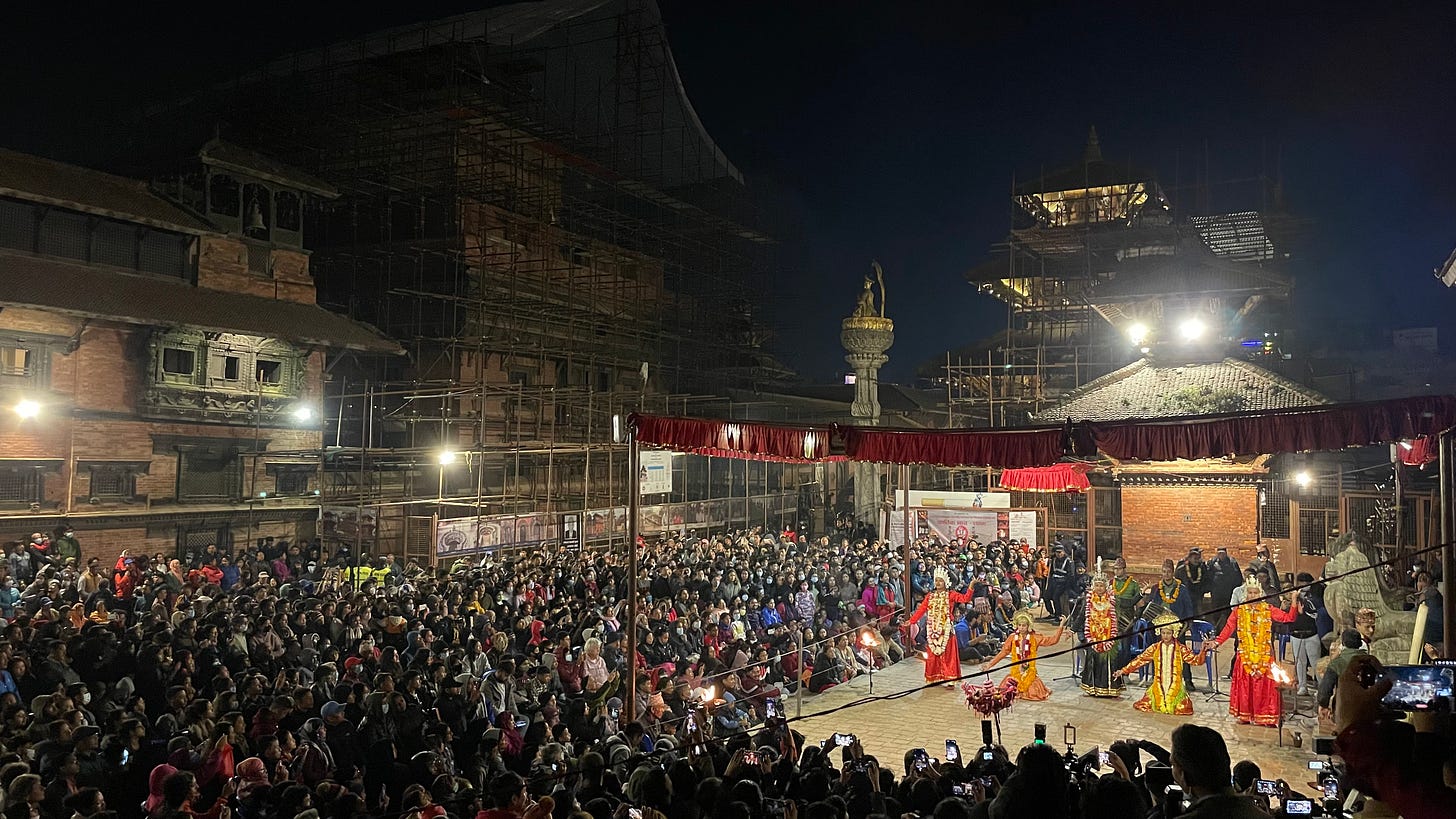
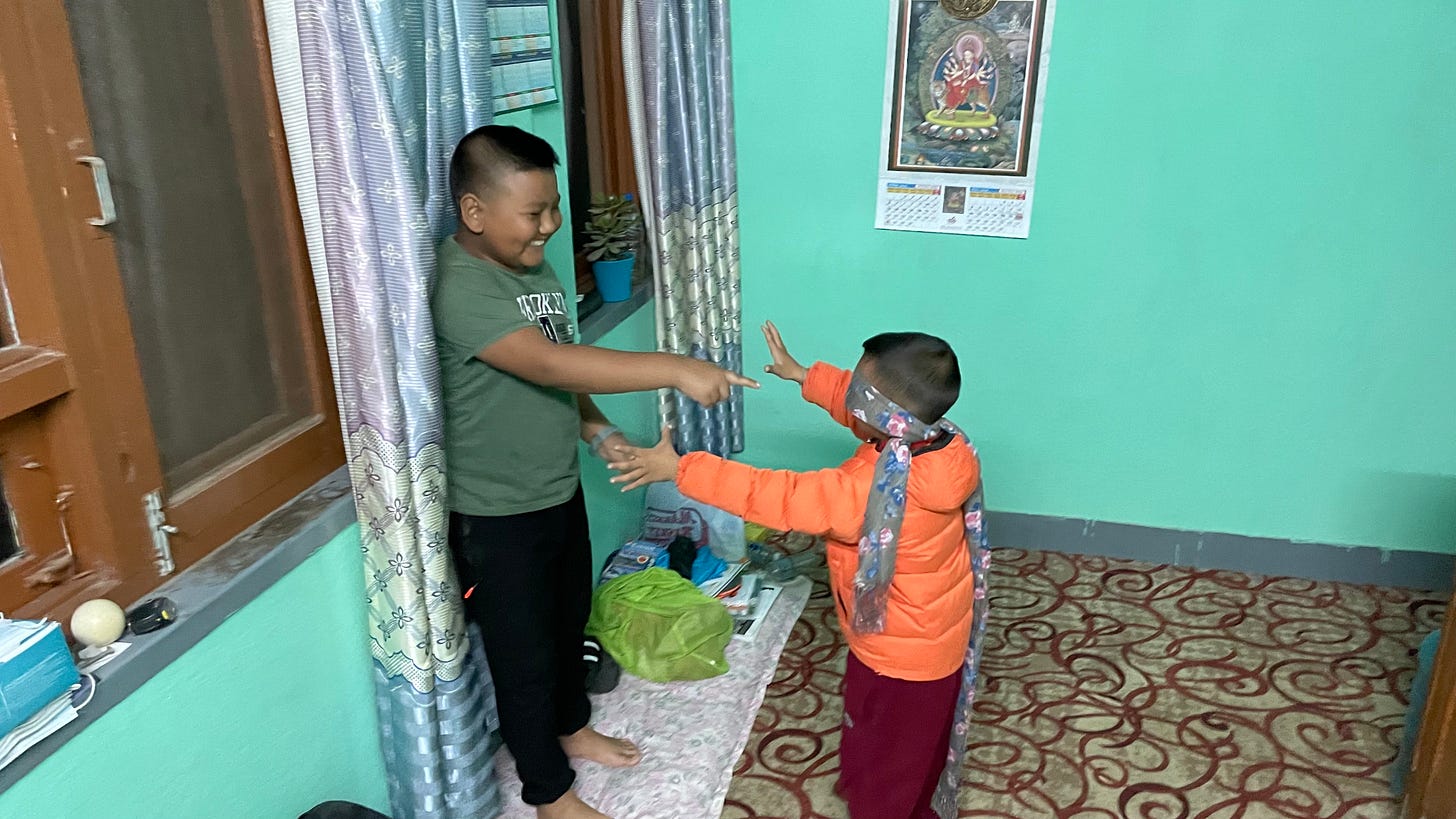
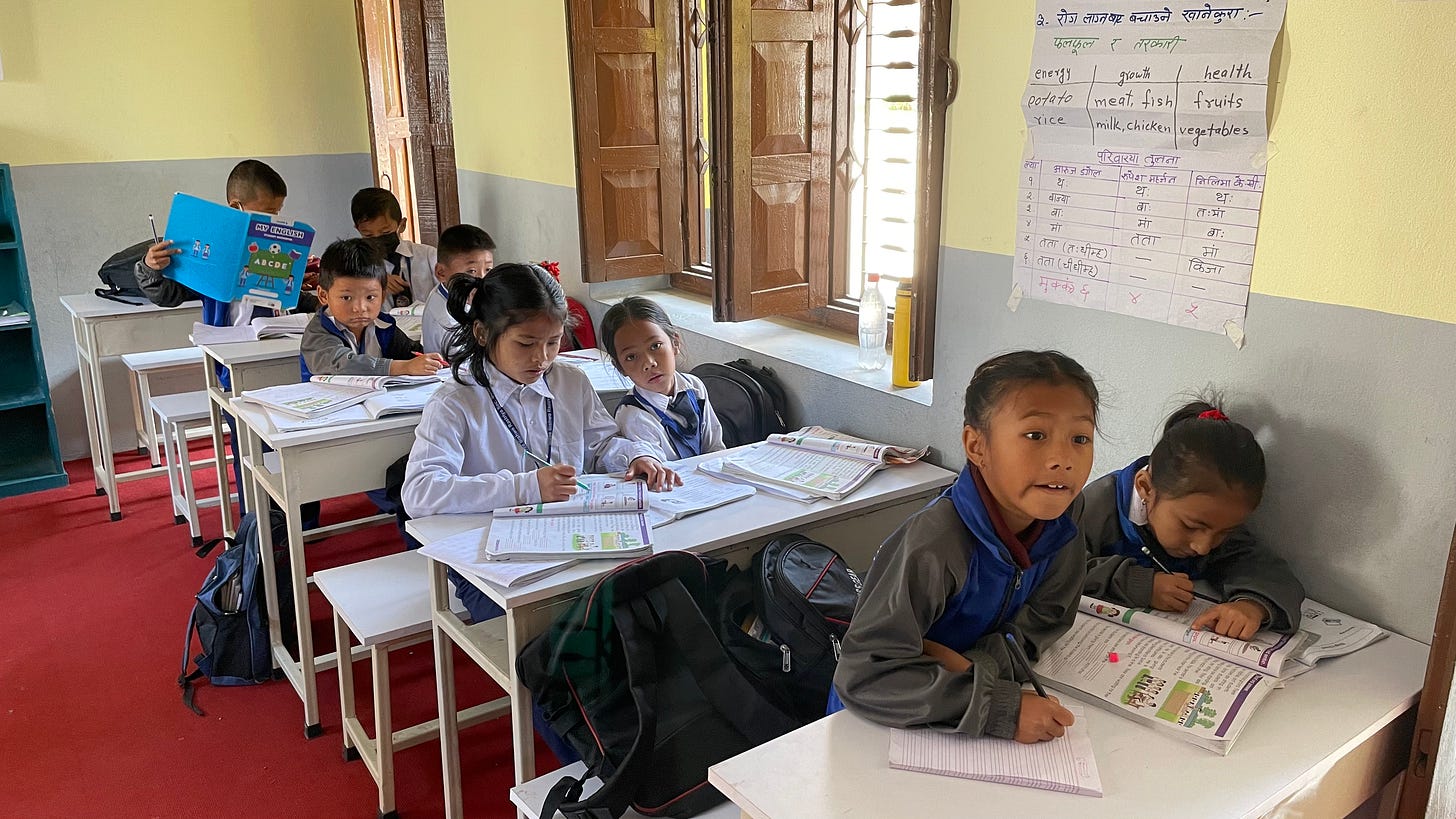
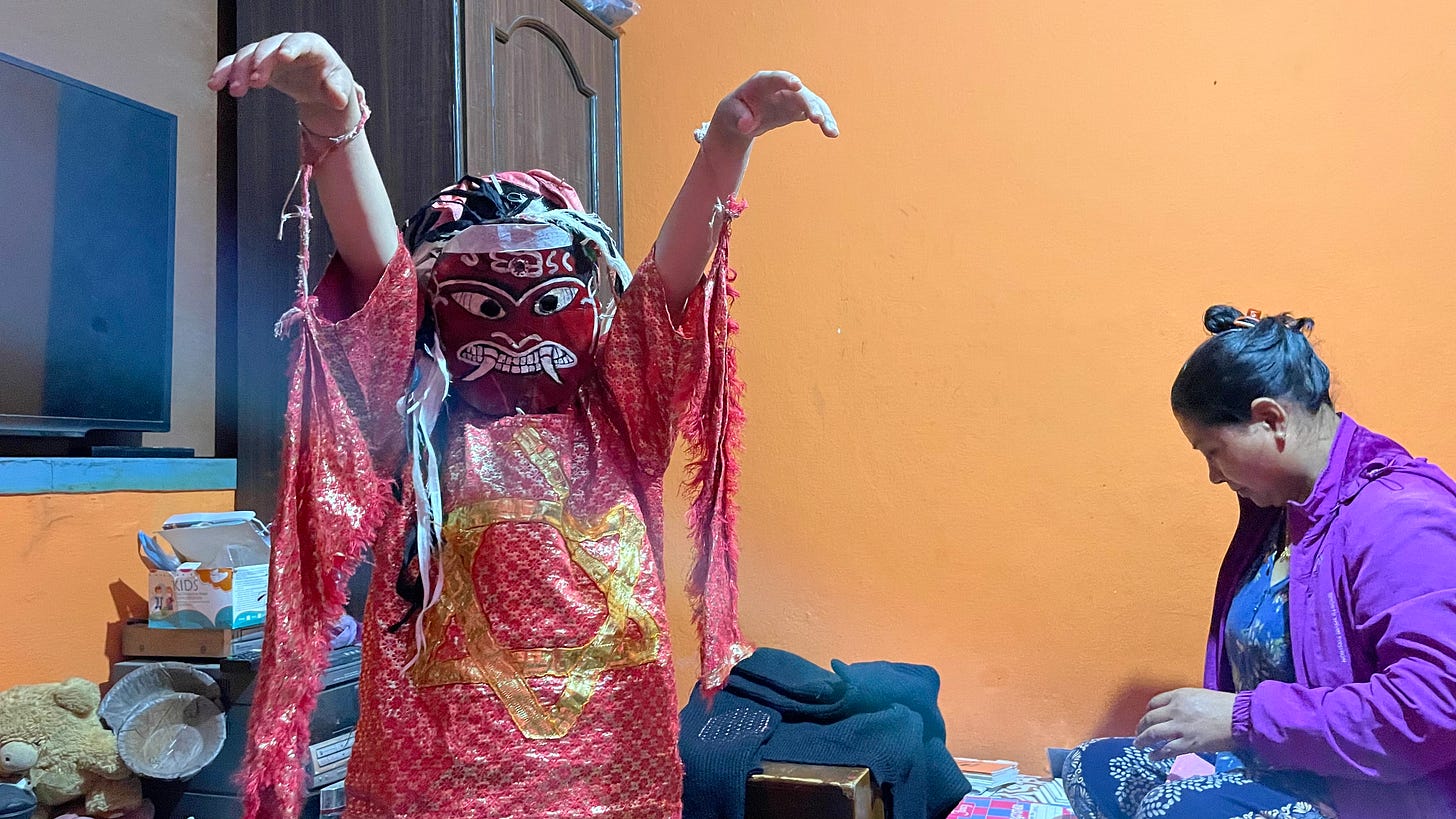
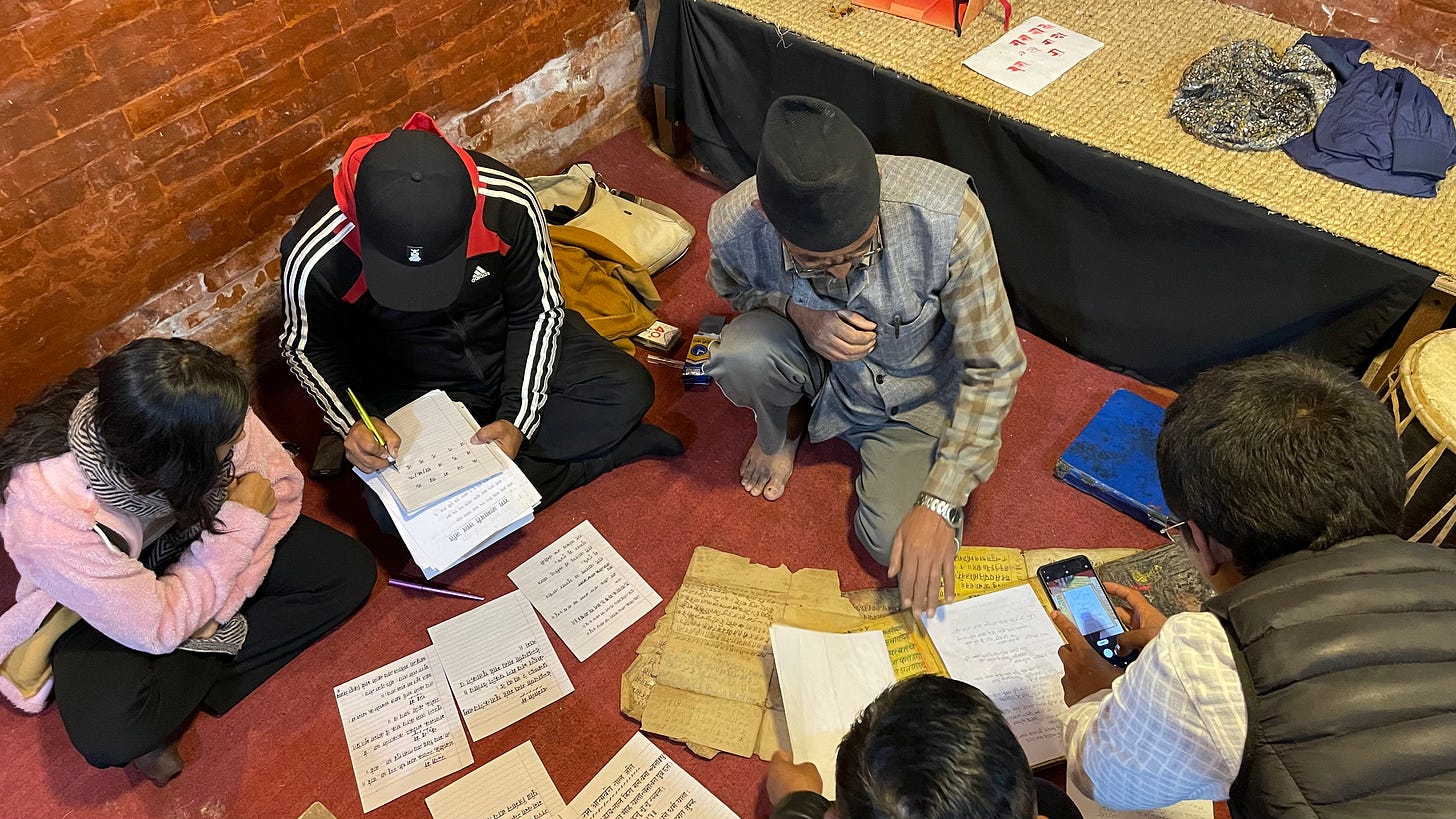
Another great post, Oren! You’re doing a great job! Your brothers are pretty cute and they, along with Hachy, are so lucky to have you in their lives! Sounds like the library job is interesting and a little crazy! Do your brothers go to your school?